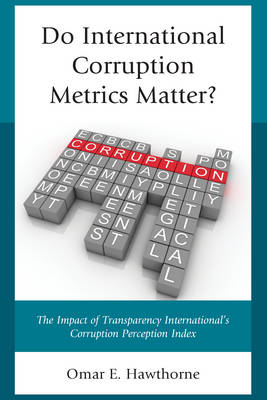Corruption, often seen as the main hindrance to development and growth in many societies, has led to greater demand for accountability and transparency in how governments conduct their businesses. This text examines the impact of Transparency International's Corruption Perceptions Index and whether or not the CPI and hence TI matter. It explores three areas: the world's political and economic responses and Jamaica's policy responses to the CPI. Jamaica is selected for a case study due to its high CPI rating from TI; Jamaica is a country that has strong anti-corruption laws but, nonetheless, sees its CPI ranking worsen almost yearly. Taking into consideration the importance scholars and policymakers give to corruption's effect on development, the findings show that the CPI-the most cited corruption index-does not change the behavior of world's political and economic policymakers. Although the index is published yearly, there is no measured change as it regards political and economic policymakers. Nonetheless, Jamaican policymakers pay significant attention to their performance on TI's CPI.
Transparency International's CPI is used as the authoritative tool to assess countries' corruption perceptions scores by both international governments and several international agencies. The use and reference of TI's CPI does not translate as the main factor in regards to the increase and or decrease of aid flow. Surprisingly, there was no evidence that the CPI affected the credit rating and or investment flow into Jamaica. It did indicate, however, that TI's CPI is reflective of the global market perceptions of Jamaica's economy. Research shows that the index does change policy responses in Jamaica as government officials across varying agencies pay attention to the index and the progression and or worsening of the country's score.
- ISBN10 1498508952
- ISBN13 9781498508957
- Publish Date 8 October 2015
- Publish Status Active
- Publish Country US
- Imprint Lexington Books
- Format eBook
- Pages 182
- Language English
